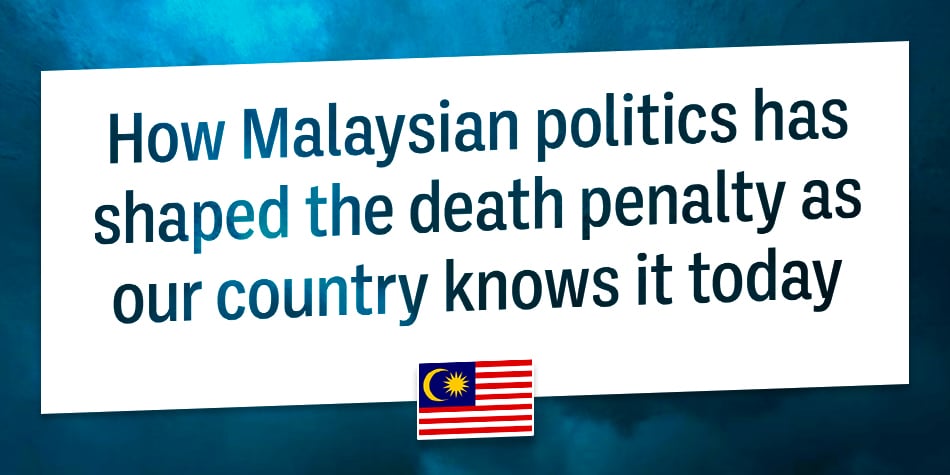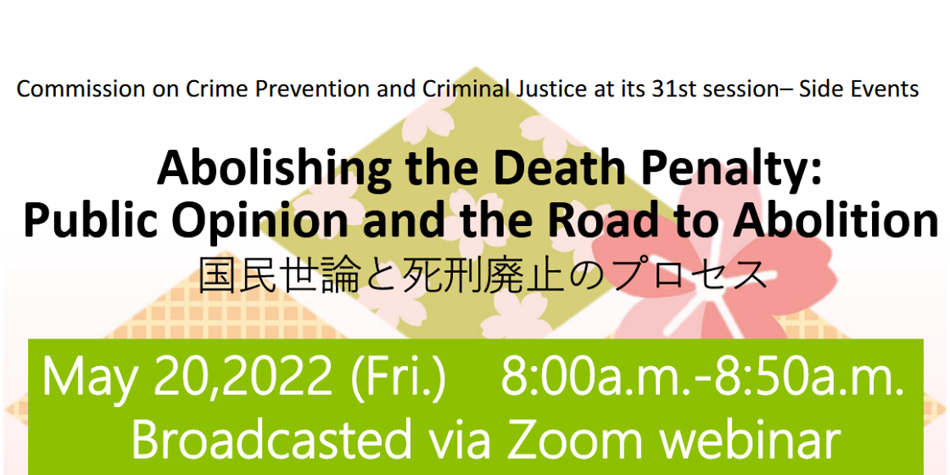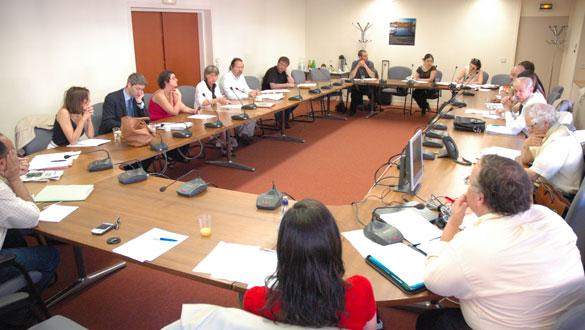
How Business May Contribute to Universal Abolition
Advocacy
Non-governmental organizations (NGOs) have long been at the forefront of the movement for human dignity, as the main, highly-specialized – and sometimes isolated– champions for social justice. However, a new generation of advocates from the private sector, whose primary center of interest or area of expertise seems disconnected from international human rights standards, has been expressing serious hopes for a fairer global society.
Is a synergy between NGOs and business even possible? This foremost question is at the heart of a series of broadcasted live talks, launched by French alliance of human rights NGOs Plateforme Droits de l’Homme (PDH), that gather representatives from both sides, for them to confront their views.
Episode two, aired on 26 January 2021, focused on criminal justice reforms and shed light on potential partnerships between NGOs and the private sector within the platform for universal abolition of capital punishment and torture. Three member organizations of the World Coalition – Amnesty International France, Ensemble contre la peine de mort (ECPM) and the International Federation of ACATs (FIACAT) – were given the floor to share analysis and examples, as well as Responsible Business Initiative for Justice, whose Founder and Director Celia Ouellette had already been invited to the World Coalition’s Steering Committee in this regard, in July 2019.
Open and Broaden the Dialogue Between Traditional and Budding Champions for Human Rights Worldwide
The dialogue between NGOs and the private sector over human rights issues has been formally encouraged at international level since the establishment of the UN Forum on Business and Human Rights under Human Rights Council’s Resolution 17/4. The UN Forum gathers several stakeholders, ranging from civil society organizations to corporations, so they can seize jointly human rights challenges by sharing latest initiatives. However, the UN Forum fails to properly address civil and political freedoms, Raphaël Chenuil-Hazan (ECPM) argued, calling them “hard rights”.
Long-term partnerships are the keystone of such a dialogue, so public stands can turn into efficient actions, Rapahël Chenuil-Hazan pursued while he referred to a company’s unsuccessful – and late – attempt to protect one of its employees from being executed in the USA. Today, opponents to the death penalty can already rely on the support of business enterprises that embraced the fight for abolition, such as Lush Cosmetics which ran a campaign in retail stores in North America to raise customers’ awareness of why capital punishment does not make our communities safer, and therefore call for its end in the US. Carleen Pickard, Ethical Campaigner at Lush Cosmetics – whose full interview during the 7th World Congress Against the Death Penalty is available here – described their campaign as very transformative, since it also lead Lush’s staff to involve in matters it often did not pay attention to before.
The International Framework on the Responsibility of Business Regarding Human Rights
According to Carleen Pickard, being an agent for change does not require for a company to be directly connected with the death penalty issue – like pharmaceutical manufacturer Lundbeck, whose disapproval of “misuse of its medicine” prompted it to overhaul the exportation of chemicals used for lethal injection in 2011.
Respecting human rights may arise out of personal ethical choices from certain business enterprises, yet this also involves a “corporate responsibility” they are all invited to observe in order to enhance existing norms and practices. Indeed, today’s cooperation between NGOs and business can refer to international guidelines that explicitly recommend the private sector take human rights infringements into account. The UN Guidelines Principles on Business and Human Rights, adopted in 2011, therefore provide that business enterprises’ responsibility to respect human rights “requires [to] avoid causing or contributing to adverse human rights impact through their own activities, and address such impacts when they occur”. The Council of Europe’s 2016 recommendations, built upon the 2011 UN guidelines above-mentioned and which it intends to implement, similarly reaffirms business enterprises’ responsibility to respect human rights. The relation between fundamental freedoms and both the positive and negative role played by business thereby appears to be seriously assessed by human rights bodies, although it remains a clear need for broader consideration for civil and political rights, such as the right to life, which constitutes the bedrock of abolition of capital punishment.
What NGOs Can Learn from the Private Sector
Besides recent but undeniable moral or legal standards to protect human rights, the private sector’s unique crowd-mobilizing levers gives it a privileged position to tackle human rights challenges and engage governments, including the few remaining non abolitionist States. As such, business enterprises can be conspicuous allies for NGOs, since they may also take – or at least share – the lead with respect to promotion of human rights. This includes a wide range of actions, such as helping raise funds for organizations, empowering and inspiring customers, or even managing major boycott campaigns – in 2019, a high-profile outcry prompted the Sultan of Brunei to reconsider the introduction of capital punishment for same-sex intercourses after the country faced boycotts threats from the tourism sector.
Celia Ouellette (Responsible Business Initiative for Justice) stressed the assets that business enterprises can offer to shape and hone the human rights movement. This includes various capacities to identify and phrase matters that can be introduced to a well targeted audience, yet this does not require at all for companies to be economic giants. Small and medium size business (SMB) have already been of great assistance for NGOs, Raphaël Chenuil-Hazan (ECPM) further confirmed.
The necessity for NGOs to preserve their independence from the private sector, or at least to ensure that corporations’ involvement does not end up labelling activities that may be contrary to their fundamental principles, may raise legitimate concerns among human rights activists. Nonetheless, this should not prevent NGOs and business from considering collaborative dynamics, to move collectively towards the common good. This would contribute to furthering the death penalty issue within the United Nations arenas, when focusing on the role of business on human rights, and subsequently strengthen the trend towards universal abolition – something every human being deserves and that should be everyone’s preoccupation, whether it be individuals, organizations, or corporations.
Categories
Public Opinion






